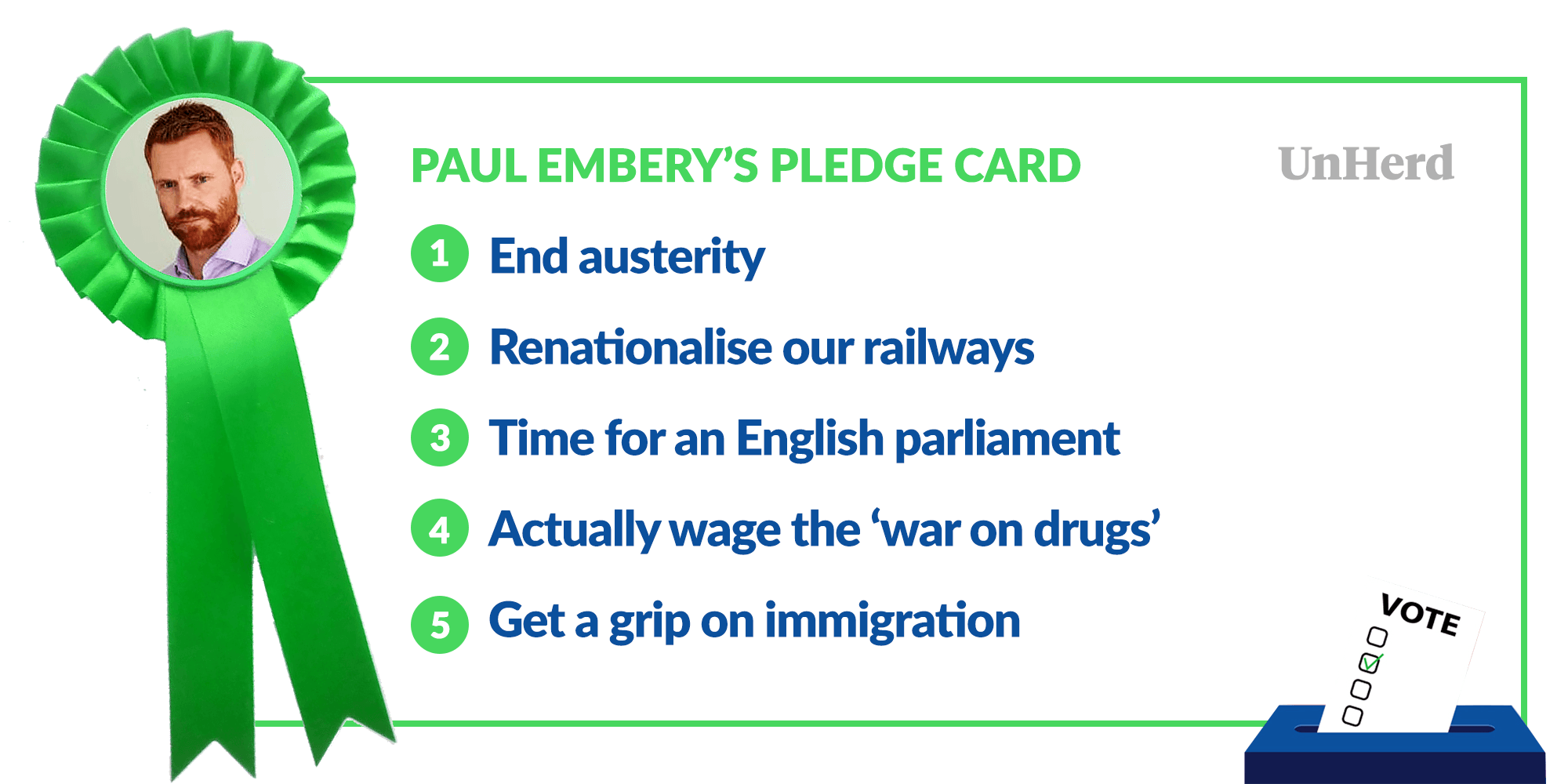Credit: Alex Livesey / Getty

As our exit from Europe continues to dominate daily politics, other, vitally important areas are being neglected. So what should our politicians’ priorities be once we are beyond Brexit? We asked our contributors to draw up a pledge card for a post-Brexit manifesto.

1. End austerity
Austerity has failed. It must be killed off for good. We have seen over the past decade, just as we saw in the 1930s, that cutting and slashing is the worst possible response to an economic crisis. By sucking activity out of the economy, austerity reduces tax revenues, hits public services and incomes, and prolongs recovery, thereby causing unnecessary pain and suffering to working people.
We need to resist the idea that a government should manage the nation’s finances in the same way that a household manages its budget. On the contrary, when everyone else is retrenching, it is the government’s job to lean against market logic and maintain spending and investment so as to keep the economy buoyant and tax revenues healthy.
Full employment, not inflationary targets, should be the prime goal of economic policy, and we should reinvigorate our much-neglected manufacturing sector by ending the overvaluation of our currency and making our exports more competitive in the international marketplace.
2. Renationalise our railways
We should take our railway system back into public ownership. Privatisation has led to an unreliable, overcrowded, fragmented, overpriced and investment-starved service. It has failed both the passenger and taxpayer.
Since our railways were sold off, government direct subsidy and fares have increased in real terms by 200% and 20% respectively. It is a scandal.
Renationalisation would be a hugely popular measure with the public. Post-Brexit would be the perfect occasion: we will be free from EU laws prohibiting public ownership of railways.
In keeping with our determination to make our air cleaner, we should redirect funds set aside for road-building and the aviation industry to a substantial expansion of our railway network. Our over-reliance on the car must end.
Poor transport links have contributed to economic decline in many of our coastal communities. We should assist regeneration efforts by reconnecting these isolated communities with our public railway system.
HS2 is an unnecessary folly. We should scrap it.
3. Time for an English parliament
We should create an English parliament with real democratic power inside a federal United Kingdom. For too long, the English have – in contrast to the Scots, Welsh and Irish – been denied their national identity and political representation. This lack of empowerment has deepened a sense of alienation and resentment among the English.
Surveys show that the overwhelming majority of people in England identify strongly as English. This is particularly so in areas that voted for Brexit.
Creating a fairer economy will not by itself bring people together. Where we currently have disunity and atomisation throughout our communities – not least because identity politics proliferates – we must foster instead a spirit of civic nationalism that generates a sense of belonging, patriotism and shared citizenship between all of our people.
So it’s time we again recognised England as a legitimate political and cultural entity in its own right – and gave the English their own parliament.
4. Actually wage the ‘war on drugs’
The scourge of drugs and our failure to tackle it has caused widespread devastation. The degree to which it has afflicted our communities – through crime and family breakdown – is inestimable. Our indulgence of illegal drug use has also contributed to the misery and carnage in supply countries such as Colombia and Mexico.
There is no ‘war on drugs’ in the UK; it is a myth. Our authorities routinely ignore illegal drug taking. We have decriminalisation in all but name.
The ‘turn a blind eye’ approach has plainly failed. Instead, we should mirror the approach of Japan – a free, law-governed and deeply civilised society – which enforces its drugs laws rigorously and, as a consequence, sees much lower usage. Because deterrence works, Japan’s prisons aren’t packed with illegal drugs users.
Cannabis, the use of which is becoming increasingly correlated with mental illness in scientific studies, should remain illegal.
5. Get a grip on immigration
Our failure regarding immigration has reinforced the disconnect that has emerged between the political establishment and the majority of voters over recent years. We have a proud tradition of welcoming new arrivals to our shores. The vast majority of Britons are decent and tolerant; they simply ask for proper control of the system.
Yet rapid and large-scale immigration into hard-pressed communities has violated the sense of place and belonging felt by many of our citizens. And by facilitating the transfer of workers from low to high-wage economies, free movement laws have proved to be a boss’s dream, as they drive down labour costs.
Migrants are, of course, not to blame personally. But all governments should seek to regulate the labour supply – which is, after all, just another market dynamic – so as to secure the best outcome for workers.
We should celebrate immigration, but we must also get a firmer grip on the system and ensure that future numbers are modest and manageable.
Click here to compare Paul Embery’s pledge card to the others in our Beyond Brexit series.










Join the discussion
Join like minded readers that support our journalism by becoming a paid subscriber
To join the discussion in the comments, become a paid subscriber.
Join like minded readers that support our journalism, read unlimited articles and enjoy other subscriber-only benefits.
Subscribe